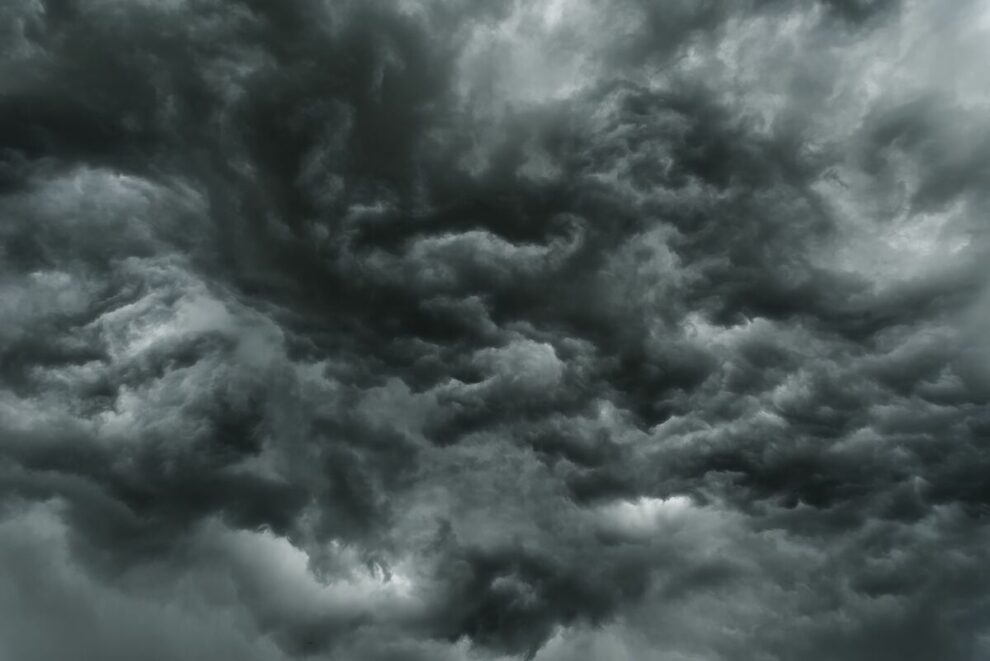Warren Buffett, the “Oracle of Omaha”, warns that one day a major disaster will strike, with enormous economic as well as human cost including to insurers. “’The Big One’,” he said, “may come from a traditional source, such as a hurricane or earthquake, or it may be a total surprise involving, say, a cyber attack having disastrous consequences beyond anything insurers now contemplate.” MSN avoided reporting what he actually said because he didn’t mention climate change. Instead they did it for him. “While some natural disasters are no fault of our own, they are in general being actively exacerbated by… over-reliance on dirty fossil fuels, according to experts.” To quote a phrase Churchill evidently did not originate, the fanatic can’t change his opinion and won’t change the subject. Which is why what purports to be a news story is filed here under opinion.
We definitely need to give some thought to events that, while not common or even likely, would have devastating consequences if they happened. What we don’t need is every news story thrusting in opinions that fossil fuels are “dirty” or that “evidence of our role in a steady shift in climate has mushroomed as we observe more frequent and extreme fires, droughts, hurricanes, and tsunamis” when we observe no such thing. Especially as Buffett made no mention of any of these things, or of climate change at all, in his letter.
MSN also opined that “our ability to predict and model the risk of oncoming natural disasters is improving at a steady clip.” To which we respond OK, then. Predict one.
When you’re done with that exercise, predict the incidence of hurricanes, droughts or tsunamis over the next decade with sufficient accuracy that we have confidence in the models. For that matter, model them over the past century when we actually know how it ended. One important weakness in climate alarmism is precisely that the models “run hot” when trying to foresee the immediate future and can’t make head nor tail of anything before 1970.
What Buffett said is news. And it’s important news, because there’s a vital engineering principle that it matters less whether something is likely to fail than whether, if it does fail, it is likely to fail badly. (For instance if a bridge is going to fall down, it’s highly desirable that it should do so gradually so everybody can get off it, just as an airplane that suddenly can’t take off is far better than one that suddenly can’t land.)
We can’t do much to prevent or lessen the magnitude of any earthquake triggered by, say the subduction of the Explorer, Juan de Fuca and Gorda tectonic platelets from northern California to Vancouver. But we can do a lot about the vulnerability of our buildings and our readiness to evacuate and care for people in a threatened area. (Likewise, putting “Faraday cages” around critical infrastructure control points and adopting some pretty elementary cybersecurity principles could reduce the risk and damage from a man-made disaster.)
One thing that is unlikely to improve any society’s capacity to furnish relief and to rebuild after a disaster is to discard our primary source of reliable, affordable energy over a climate panic fostered, in part, by the media inserting unfounded opinion claims into what are ostensibly news stories.



Despite what you may have heard about the science being "settled," there are in fact numerous uncertainties in the science that are admitted to by the IPCC. The way climate modelers handle these uncertainties is to make guesses about how much of this influence results in how much of that change; they then "test" the guesses against actual observations, adjust the guesses, run the models again, and adjust the guesses until they have a close fit between what the model produces and the actual observations over a given period of time.
You might have wondered why the IPCC models are so good at "predicting" the average global temperature from 1980 to around 2000, after which the model predictions start to veer off from actual observations in the "hot" direction. That's because the models don't "predict" the temperature from 1980 to 2000 at all; the models were tinkered with until their outputs match the curve of the observed temperatures between 1980 and 2000. Once that short time-period fit is established, the modelers believe they have created a comprehensive theory of climate which is capable of predicting the future. Except the models don't predict the future. Nor, if you run them starting with the known climate variables at any time other than 1980 to 2000, do they "retrodict" climate change. The IPCC models do a crap job of reproducing the temperature variations experienced during the 20th century, and are on track to do just as bad a job of predicting temperature variations in the 21st century. And yet the government wants us to adjust our entire way of life in homage to these models? I don't think so....
Living as I do in a place that 12000 years ago was under a km or so of ice I wonder how the climate models perform in explaining how it all disappeared, apparently without any help from humankind? Or, more importantly perhaps, what they say about it happening again, since I understand ice-ages have been a regular feature of climate for a few hundred thousand years.